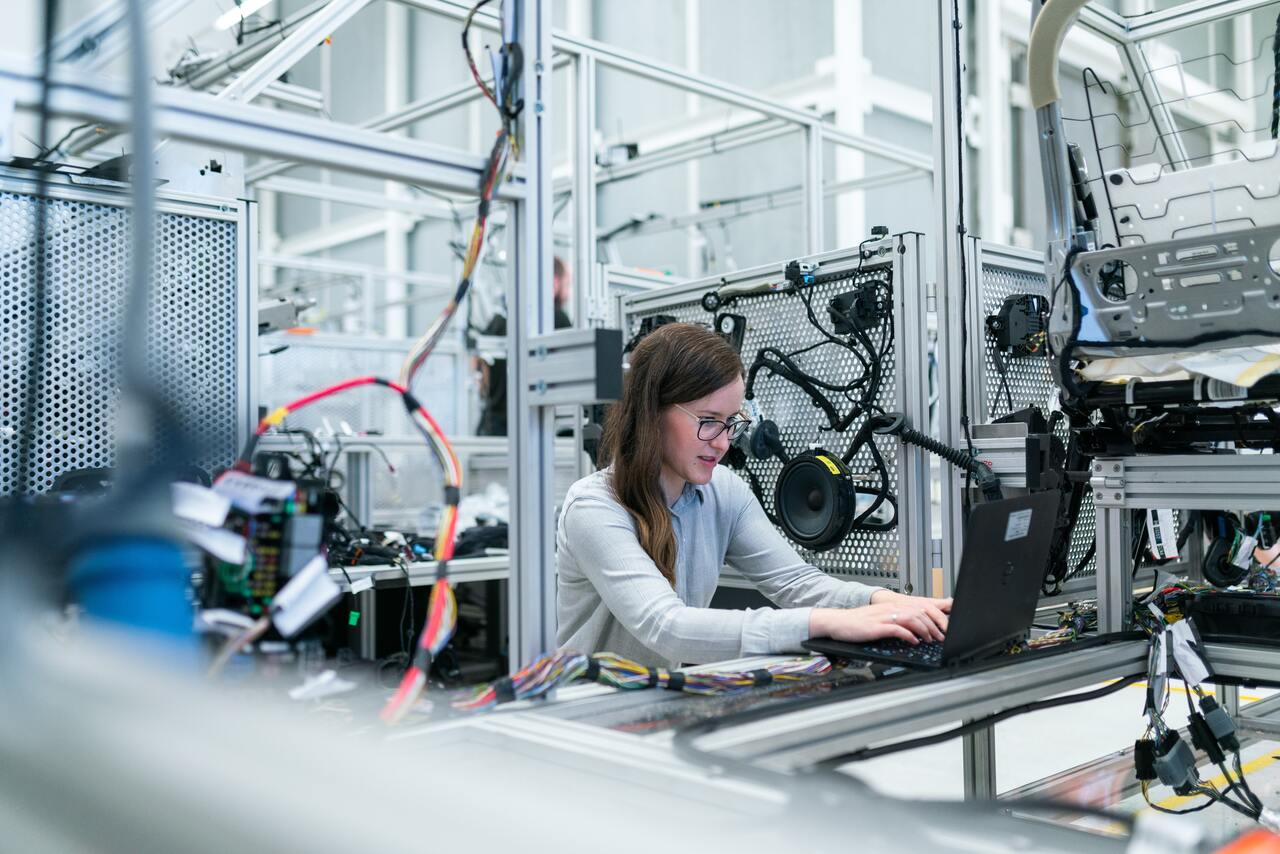Machine Learning: Driving Innovation Across Business Sectors
November 5, 2023
The technology of machine learning is not new. Machine learning and pattern recognition algorithms have been around for many years. Machine learning models, however, are starting to interact with more complex data sets and learn from their previous computations and predictions to produce more reliable decisions and results.
Building the proper model can make it easier for you to identify profitable opportunities across your company and avoid unknown risks.
A machine learning system should be able to adapt to new data independently and make intelligent decisions based on thousands of calculations. It involves incorporating artificial intelligence into business applications, using deep learning, or combining data with artificial intelligence.
Models of machine learning recognise patterns, learn, and make decisions with minimal help from the human. The goal of machines is to increase accuracy, efficiency, productivity, and remove (or greatly reduce) any possibility of human error.
Using Machine Learning to Improve Your Business
Machine learning has been driven by the growing availability of huge amounts of data, inexpensive data storage, and the proliferation of less expensive, faster processing.
Now, there are many industries developing more advanced machine learning technologies capable of analysing bigger information while delivering faster and more accurate results. By leveraging these tools, organizations are able to identify profitable opportunities and risks more quickly.
Machine learning has been proven to significantly improve business results that can affect a company’s bottom line. With the development of new techniques in this field, the possibilities for the application of machine learning have become virtually limitless.
As companies rely on vast amounts of data, companies have embraced the use of machine learning as the best way to build models, strategize, and plan for the future.

Industry Sectors that Use Machine Learning
Healthcare
The proliferation of wearable sensors and devices that track everything from heart rate to steps taken to sugar and oxygen levels is generating tons of powerful data that enables doctors to assess the health of patients in real time. New machine learning algorithms detect cancerous tumours on mammograms, identify skin cancer, and diagnose diabetic retinopathy based on retinal images.
Government
Government officials can use machine learning to predict potential future scenarios and adapt to rapidly changing situations through systems that make use of data.
Using machine learning, cyber security and intelligence can be improved, counterterrorism efforts can be supported, operational readiness, logistics management, and predictive maintenance can be optimized, and failure rates can be reduced.
Marketing and sales
Artificial intelligence (AI) and machine learning are even revolutionizing the marketing sector, with many companies increasing and enhancing customer satisfaction by over 10% through the implementation of AI and machine learning. According to Forbes, enterprises view AI and machine learning as a key tool for improving customer experience.
Social media and e-commerce sites can analyse your buying and search patterns-and recommend items based on those patterns. Experts believe retail’s future will be driven by artificial intelligence and machine learning in the coming years as deep learning business applications gain even more capability over time at capturing, analysing, and using data to personalize individuals’ shopping experiences and develop customized targeted marketing campaigns.
Transportation
This sector is driven by efficiency and accuracy, along with a capacity to predict and mitigate potential problems. Businesses within the delivery, public transportation, and freight transportation sectors can benefit greatly from machine learning’s data analysis and modelling functions.
Using machine learning algorithms, supply chains can determine what factors positively and negatively impact success, therefore this process is vital to supply chain management.
The application of machine learning in the logistics industry facilitates the process of selecting carriers, rating them, routing them, and improving the quality control of these processes, which improves productivity and saves money. By analysing thousands of data points at once and applying algorithms faster than anyone, machine learning can solve problems humans haven’t thought to solve yet.
Financial services
Investors can identify new opportunities using machine learning in this industry or know when to trade with it using the insights provided by machines. Using data mining, companies can identify high-risk customers, and cyber surveillance can identify signs of fraud. In lending and insurance underwriting, machine learning can help calibrate financial portfolios and assess risk.
Artificial intelligence and machine learning may contribute to evaluating hedge funds and analysing stock market movements in this industry in the future. It is possible for machine learning to improve anomaly detection by taking facial recognition or voice recognition to the next level: offering users a better way to log in using their biometric data.
Oil and gas
The uses of machine learning and artificial intelligence range from finding new energy sources to analysing mineral deposits in the ground, predicting refinery sensor failure, to streamlining oil distribution to decrease costs and increase efficiency. A variety of advanced machine learning technologies are revolutionizing the industry, including case-based reasoning, reservoir modelling, and drill floor automation. Furthermore, machine learning is helpful in making this industry safer.

Manufacturing
The manufacturing industry has been embracing machine learning for years. Applications of machine learning in manufacturing are aimed at improving the entire value chain from concept to delivery, reducing error rates, improving maintenance efficiency, and increasing inventory turnover.
Machine learning can also be applied to improving logistics solutions, which include asset management, supply chain management, and inventory management. Measurement of availability, performance, and quality of assembly equipment is also a key aspect of machine learning for improving overall equipment effectiveness (OEE).
Final Thought
It is becoming more and more common for machine learning to be used in all business sectors to solve complex business problems while improving an organization’s effectiveness and scalability.
Although there are numerous complexities associated with the implementation of ML, businesses are willing to undergo this time-consuming and relatively expensive process since it offers tangible and substantial benefits compared to any other analytical method.










